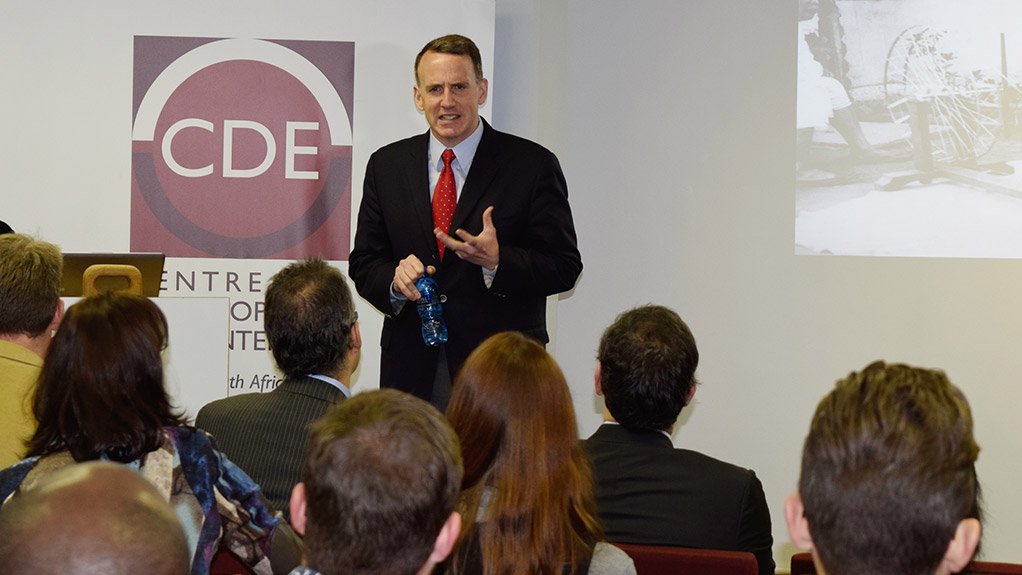The success of any city depends on the ability of its citizens to share ideas and influence each other, says Harvard University economics professor Edward Glaeser.
Glaeser, who was hosted on Tuesday by the Centre for Development and Enterprise, in Johannesburg, said that, at the start of the twenty-first century, it was very noticeable that people clustered instead of spreading out and, by 2007, more than 50% of people lived in cities.
There was no future in rural urbanisation, he argued.
In a South African context, he revealed that the urban–rural happiness gradient showed that people in urban areas were much happier than those living in rural areas.
“Cities exist to connect us. That explains why it has become more vital with the rise of communication technology, which increases returns on innovation. Creativity begins by being around people. Cities spur innovation by facilitating face-to-face interaction and encourage entrepreneurship. The more densely populated cities are, the faster ideas flow,” he explained.
Glaeser argued that a city’s most important features were not its skylines, structures or infrastructure, but rather its people. A city was great when the people living in it enjoyed themselves and were achieving what they needed to.
Skills were significantly important in predicating urban success and having skilled people around other people made everyone more productive, which, in turn, made a city more productive. The skills that mattered, he believed, were the ones learnt while working.
Further, a place with a large number of small establishments was more successful than a place with a few large firms.
“Having a small entrepreneurs agenda is crucial. It is important to make sure that, at all levels of society, as many people as possible get started. The history of economies based on natural resources shows that these economies don’t last. We need to invest in other things. Entrepreneurship is human capital,” Glaeser stated.
Meanwhile, South Africa Cities Network CEO Sithole Mbanga countered Glaeser on the urban–rural happiness gradient.
He said that, while South African cities were growing and the demographic was becoming younger, citizens were also becoming more frustrated as many of the youth were unemployed.
Further, he said that African cities differed from those in Europe and the US. “Our cities tend to not want to embrace informal businesses. Poverty is no longer a rural issue; there is more poverty in urban areas than in rural areas.”
EMAIL THIS ARTICLE SAVE THIS ARTICLE
To subscribe email subscriptions@creamermedia.co.za or click here
To advertise email advertising@creamermedia.co.za or click here











